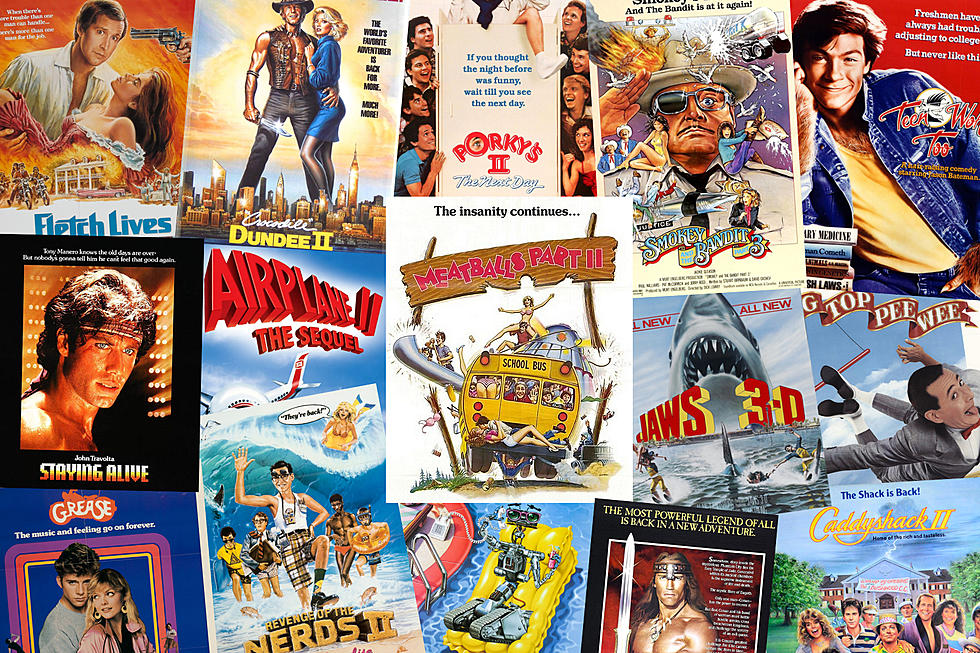
45 Years Ago: ‘All the President’s Men’ Becomes an Unlikely Blockbuster
All the President’s Men was an unlikely hit, but they were unlikely times.
When Robert Redford set out to dramatize the way in which two junior journalists pulled down a corrupt U.S. administration, he wasn’t thinking in terms of the success he achieved. But All the President’s Men won four Oscars after its release on April 9, 1976 – and it’s generally accepted that it should have won more.
On the surface, it sounded like a worthy project. The narrative followed Washington Post newsmen Bob Woodward (Bernstein) and Carl Bernstein (Dustin Hoffman) – relatively low-key local reporters who didn’t like each other much – as their workmanlike process connected the burglary of an office in the Watergate building to the office of Richard Nixon, ultimately forcing the president's resignation.
But Redford wasn’t interested in following the kind of backstage drama seen in dark modern-era political sagas like House of Cards or Scandal. In fact, the movie ends just at the point where the duo (known as “Woodstein” in the Post offices) has uncovered enough dirt for the Watergate scandal to begin unfolding in large type.
The movie – based loosely on the pair’s book of the same name – instead explores their experience of doubting, being doubted, endless paper trails, slammed doors, wrong turns, mistakes, standoffs and regular put-downs by their executive editor, Ben Bradlee (Jason Robards, who won the Best Supporting Actor Oscar for his performance).
Redford had been following the Watergate story since soon after its lowly beginning as a local crime report. “I’m fascinated by journalism,” he told AARP in 2013. “I developed the project over three and a half years. I started it when few people were talking about Watergate. Later, I spent a lot of time with the two journalists.”
Watch the Trailer for ‘All the President’s Men’
When he first made contact, they didn’t believe it was him, then believed the approach was part of the setup they knew was being build around them. After Nixon’s resignation, Redford bought the rights to their book, but encountered difficulties in working with them – Bernstein in particular, who insisted on writing his own script that introduced fictional elements. (The key informer Deep Throat’s “follow the money” line is one of the few fictions that were allowed to pass.)
Fiction wasn’t what Robert Redford wanted at all. What he wanted was as much accuracy as he could muster: In fact, when the Washington Post refused permission to film on their editorial floor, Redford had the place measured and rebuilt it on a sound stage as faithfully as possible. The bricks were modeled from the original wall; the office furniture was suppled from the paper’s source, and painted the same colors. (Anyone who’s worked in a daily paper’s newsroom will testify to the accuracy of the look and feel of the movie version.)
For the actor, it was all about truth – and that’s probably why a two-hour movie of barely developed characters with little backstory, simply going about their business, worked as well as it did. In the end, All the President’s Men took in $71 million at the box office from a budget of $8.5 million, in a market heavy with action movies such as Rocky and Jaws.
“What [Woodstein] did was totally heroic. It was journalism as a path to the truth,” Redford told AARP. “You don't see much of that today. I was so proud and so happy to make a film that celebrates how important journalism is and how it proved itself by hard work. I put a keen eye, not a negative eye, on its role – particularly how it is changed by the times we're living in. … I wanted to focus on something I thought not many people knew about: How do journalists get the story?”
Critic Roger Ebert, for one, was impressed by the results. “Newspaper movies always used to play up the excitement and ignore the boredom and the waiting,” he wrote at the time. “This one is all about the boredom and the waiting and the tireless digging; it depends on what we already know about Watergate to provide a level of excitement.
Watch the ‘Count to 10’ Scene From 'All the President's Men'
“Who'd have thought you could build tension with scenes where Bernstein walks over to Woodward's desk and listens in on the extension phone? But you can,” Ebert added. “And the movie's so well paced, acted, and edited that it develops the illusion of momentum even in the scenes where Woodward and Bernstein are getting doors slammed in their faces.”
Ebert speculated that Redford, director Alan J. Pakula and writer William Goldstein must have been tempted at times to turn the film into something more standard, arguing that it was to the team's credit they didn’t.
“This is the story of a story: of two reporters starting with an apparently minor break-in and following it, almost incredulously at times, as it finally leads all the way to the White House,” Ebert said. “At times the momentum of Watergate seems to propel Woodward and Bernstein, instead of the other way around. It must have occasionally been like that at the time, and it's to the movie's credit that it doesn't force its characters into the center of every scene.”
Redford returned to the project in 2013 with an Emmy-nominated documentary film titled All the President’s Men Revisited, and hit upon a new revelation: The original movie may have been too successful.
“I don't think anybody expected Watergate to get as big as it did,” Redford said. “The movie followed that trend. It got a lot of attention. Probably too much. People entered journalism school thinking, ‘Hey, maybe a movie could be made about us, too.’ What these two reporters did was a moment in time. Can that moment ever come back? I don't think so.”
In the decades since, “journalism has changed tremendously because of the democratization of information. Anybody can put something up on the Internet,” Redford added. “It's harder and harder to find what the truth is. When you have barking dogs on TV that are so extremely to the right, lying right to your face and with such conviction, someone tuning in [and] thinks, ‘Hey, this is what the truth is.’ When I was younger, you had to get two people to go on record before you could quote a source. That's gone.”
Redford added: “What took it away was the effort to compete. You had to scoop. Sometimes you couldn't wait around to do things the ethical way.”
Rockers With Presidents
More From Ultimate Classic Rock









